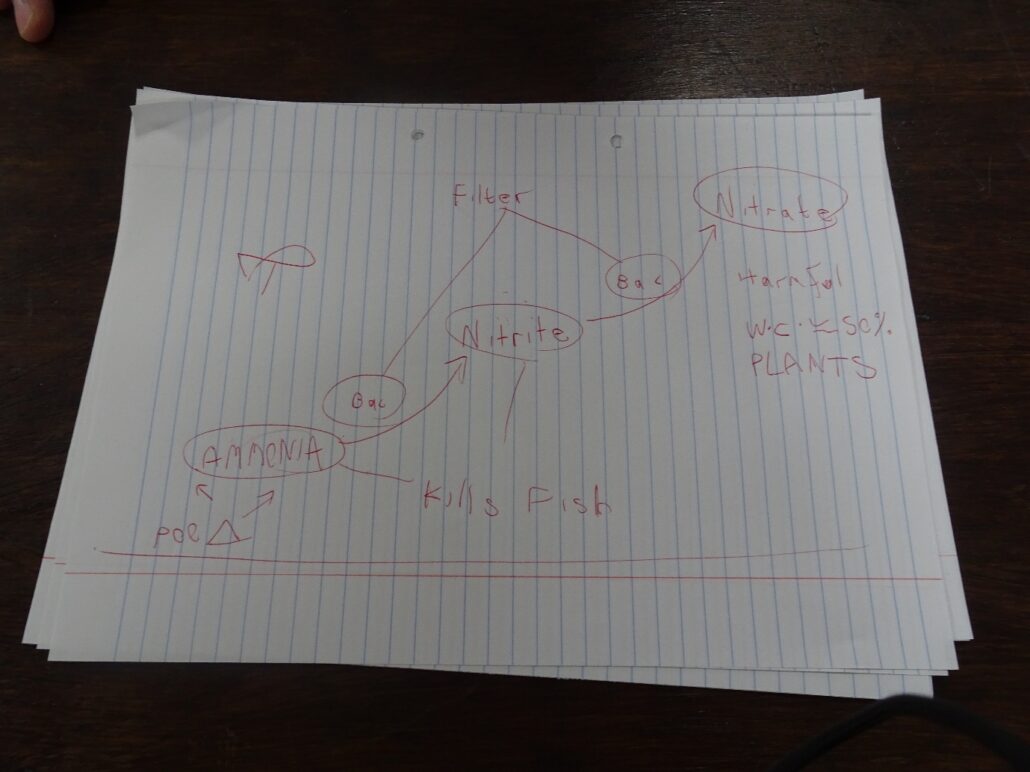Tropical Fish Club – Week 8
Nitrogen cycle article written by Mubarak & Kiran 8N – 19/05/2021

This week in the Tropical Fish Club, we learned about how we care for fish tanks at home. We learned that keeping healthy fish means that we must first, keep healthy bacteria! We learnt about the nitrogen cycle and that we need a good understanding of this in-order to develop the tank the way that we want.
The Nitrogen Cycle is probably the most important thing for a tank to keep going. This cycle, maintains a healthy state in a tank; the cycle works like this:

When a fish gets rid of it’s waste it sinks to the bottom and starts to decay, like anything which has nutrition (this also includes uneaten food). This makes Ammonia which is really dangerous to fish and is lethal to them. Amongst other issues, ammonia can harm the gills of fish which will disrupt their method of taking in oxygen!

So our filter in the tank needs to be given the chance to develop a bacteria which can convert the ammonia into nitrites (NO2−). These nitrites are also deadly for fish though. When there is enough nitrite around in the tank, other bacteria will develop in our filter which will convert nitrites into nitrates (NO3-). Fish are able to cope with nitrates in the water, unlike ammonia and nitrites.
These nitrates are also very good for the plants, the plants will use these nitrates as a source of nitrogen for their growth (acting as a fertilizer). Having said this, too much nitrate can kill fish, which is why we must carry out regular water changes. This will reduce concentrations of nitrates weekly, so we will never reach toxic levels.

This means that bacteria which convert ammonia to nitrites, and nitrites to nitrates are very important to establish in our filters before adding any fish. We can do this by regularly adding fish food to fish tanks (without fish in) to begin to build up these bacteria within the running filter. Alternatively, we can add products into our tanks which contain these bacteria, such as the ones, kindly donated to us by API! They very kindly gave us some of these quick-start bottles which speed this process up! They also gave us some test kits which allows us to monitor the water chemistry in our aquarium. We would like to thank API for sending us so much equipment which will help us with our projects!

This has given us a lesson in patience, water chemistry and responsible pet care. This is going to be helpful in the future, especially for beginners like some of us in the club!
Mubarak DeSilva & Kiran Patel 8 Nelson
Week 8

























